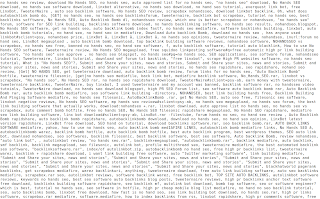After Panda update and subsequent panda releases, Google have released a new update called a Penguin Update.
Below is the post from Google: Source- Google Inside Search blog (http://insidesearch.blogspot.co.uk/)
“….Google has said before that search engine optimization, or SEO, can be positive and constructive—and we’re not the only ones. Effective search engine optimization can make a site more crawlable and make individual pages more accessible and easier to find. Search engine optimization includes things as simple as keyword research to ensure that the right words are on the page, not just industry jargon that normal people will never type.
“White hat” search engine optimizers often improve the usability of a site, help create great content, or make sites faster, which is good for both users and search engines. Good search engine optimization can also mean good marketing: thinking about creative ways to make a site more compelling, which can help with search engines as well as social media. The net result of making a great site is often greater awareness of that site on the web, which can translate into more people linking to or visiting a site.
The opposite of “white hat” SEO is something called “black hat webspam” (we say “webspam” to distinguish it from email spam). In the pursuit of higher rankings or traffic, a few sites use techniques that don’t benefit users, where the intent is to look for shortcuts or loopholes that would rank pages higher than they deserve to be ranked. We see all sorts of webspam techniques every day, from keyword stuffing to link schemes that attempt to propel sites higher in rankings.
The goal of many of our ranking changes is to help searchers find sites that provide a great user experience and fulfill their information needs. We also want the “good guys” making great sites for users, not just algorithms, to see their effort rewarded. To that end we’ve launched Panda changes that successfully returned higher-quality sites in search results. And earlier this year we launched a page layout algorithm that reduces rankings for sites that don’t make much content available “above the fold.”
In the next few days, we’re launching an important algorithm change targeted at webspam. The change will decrease rankings for sites that we believe are violating Google’s existing quality guidelines. We’ve always targeted webspam in our rankings, and this algorithm represents another improvement in our efforts to reduce webspam and promote high quality content. While we can’t divulge specific signals because we don’t want to give people a way to game our search results and worsen the experience for users, our advice for webmasters is to focus on creating high quality sites that create a good user experience and employ white hat SEO methods instead of engaging in aggressive webspam tactics.
Here’s an example of a webspam tactic like keyword stuffing taken from a site that will be affected by this change:

Of course, most sites affected by this change aren’t so blatant. Here’s an example of a site with unusual linking patterns that is also affected by this change. Notice that if you try to read the text aloud you’ll discover that the outgoing links are completely unrelated to the actual content, and in fact the page text has been “spun” beyond recognition:

More can be read on the Google Inside Search blog on http://insidesearch.blogspot.co.uk/.
The update is now live and has affected many websites. At teclan, we are also researching and discovering new ideas that will help our customers to still reach to their audience through good and ethical SEO techniques.
